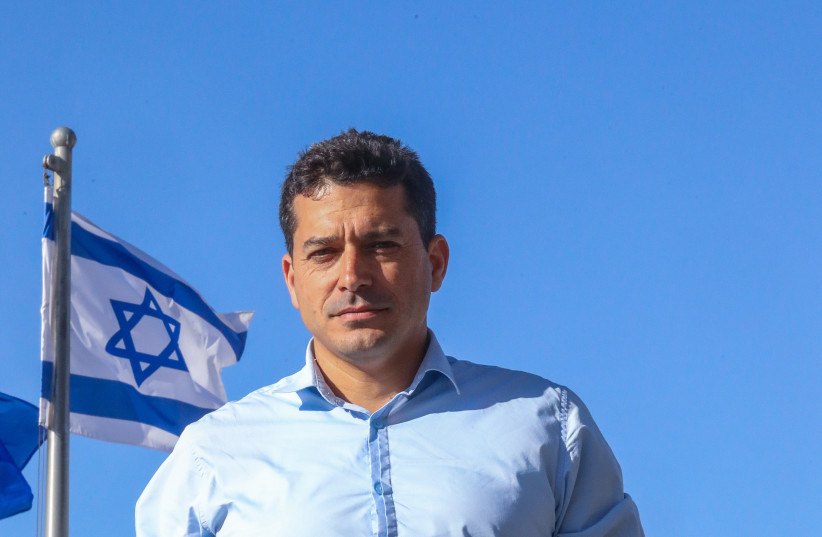Negotiations between the different right-wing religious parties and presumptive prime minister Benjamin Netanyahu are intense, but there aren't many public discussions on the state of the Diaspora Affairs and Aliyah and Integration ministries, with most Israeli media coverage having to do with more "prestigious" portfolios. The Jerusalem Post has learned, however, that there are a few possible candidates for these “lesser” roles.
Former and future MK Amichai Chikli (Likud) is considered to be a serious and realistic candidate on behalf of Netanyahu's party for the Diaspora Affairs Ministry. The 41-year-old returning MK – who left Naftali Bennett's Yamina Party after he established a government with left-wing and Arab ones – was promised by Netanyahu that he would become a minister in the upcoming government.
Chikli himself wouldn't respond to questions on the matter, but senior sources in the Jewish world, including from four major national institutions – the Jewish Agency, WZO, KKL-JNF and Keren Hayesod – have said that he is considered to be both one of the more probable candidates and the most qualified and acceptable one for the job.
The Diaspora Affairs Ministry, led today by Dr. Nachman Shai, is considered to be a small one, but one that allows its minister to make a long-term difference, since not all of its funding is allocated to existing projects, as is the case with the Education Ministry. In the past decade, the ministry has invested more than NIS one billion on projects and organizations outside of Israel.
"Chikli is relevant for this role since he is considered to be one of the more moderate politicians in the upcoming expected coalition, definitely religiously."
Senior national institutions source
"Chikli is relevant for this role since he is considered to be one of the more moderate politicians in the upcoming expected coalition, definitely religiously," a senior source in the national institutions told the Post on Thursday. Chikli is a member of Kibbutz Hanaton, which was the first and only kibbutz run by the Masorti-Conservative movement. His father Eitan Chikli is a Masorti rabbi and was one of the heads of the movement years ago. The younger Chikli himself was a member in the Noam youth movement of the Masorti movement in Israel. He is also an educator, having established and run a pre-army Mechina Tavor Academy for Social Leadership in Nof Hagalil.

Who else could be tapped for Israel's Diaspora Affairs Ministry?
OTHER CANDIDATES for both mentioned ministries include Likud MK Yuli Edelstein, who has served as minister many times during his long political career. Edelstein served as chairman of the Knesset for many years, until he and Netanyahu became political rivals. He received a very low spot on the Likud list and therefore won't be expected to be able to get a larger portfolio.
Edelstein served as Diaspora affairs minister more than a decade ago, but the ministry has since grown and become more relevant. He could also potentially become minister of aliyah and integration, a topic he knows and that is close to his heart. Edelstein is very popular among heads of organizations and Jewish leaders in the Diaspora.
Other names that were mentioned by Likud members are former UN ambassador Danny Danon and former Jerusalem mayor Nir Barkat. Both of these politicians see themselves as possible heirs of Netanyahu, therefore they probably won't be satisfied with what is considered to be a small portfolio. If MK Haim Katz becomes a minister, Danon is expected to promote himself as the Likud candidate for chairman of The Jewish National Fund (KKL-JNF). Although Katz is supposed to begin his role as chairman of KKL-JNF in the middle of November, he prefers to become a minister.
Another possible candidate could be Boaz Bismuth, former editor-in-chief of the popular Israel Hayom newspaper, but he is No. 27 on the Likud list, so it may not be relevant. Bismuth has lived in France for many years and speaks perfect French and English.
The assumption is that the haredi (ultra-Orthodox) parties won't want to run the Diaspora Affairs Ministry since it has a lot to do with Progressive Judaism.
Who will be tapped for Israel's Aliyah and Integration Ministry?
As for the Aliyah and Integration Ministry, possible candidates are MK Yossi Taieb from the Shas Party, who made aliyah from France and who runs the party's campaign to olim communities. But Taib is No. 10 on the list and is considered to be one of the younger and newer members of Knesset from Shas, so his chances aren't very high.
In the Religious Zionist Party (RZP), the natural candidate for either of the two ministries is future MK Ohad Tal, who served for a very short period as director general of World Bnei Akiva, but he is also a new member of the party and there are others who expect to get a senior position before him.
Another candidate is Rabbi Amichai Eliyahu, member of the Otzma Yehudit faction of RZP. In the past few years he has been active in promoting dialogue about and with Diaspora Jewry from an orthodox perspective, but his level of English may not be good enough for the position.
